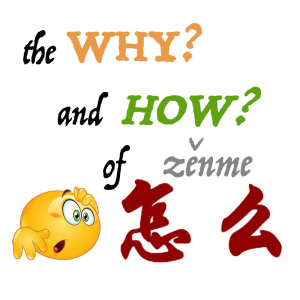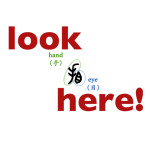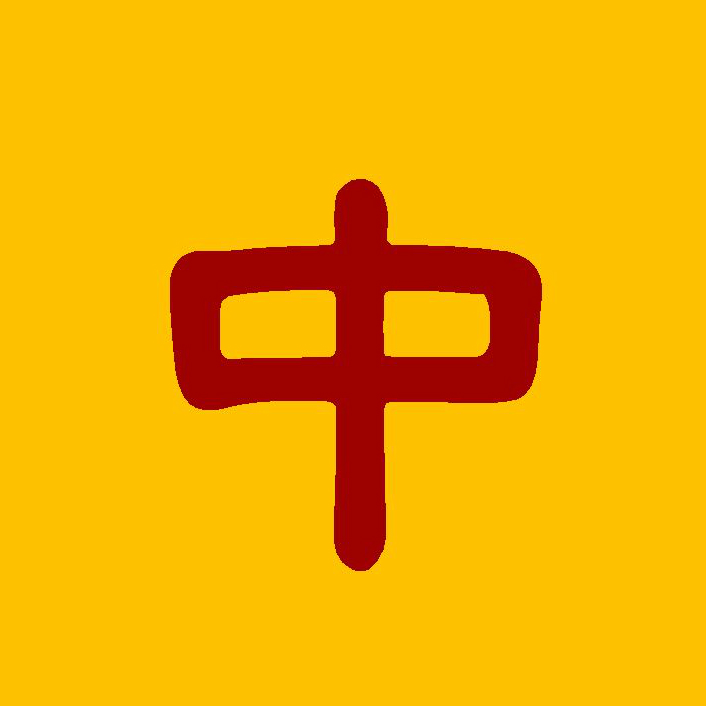The Why and How of ‘怎么’ (zenme)
You probably know that ‘怎么’ (zenme) means ‘how’, but are you aware that it also has the meaning of ‘why’?

So how do you know when it means ‘how’ and when it means ‘why’?
Also, when it refers to ‘why’, does it mean exactly the same as ‘为什么’?
Let’s start from the basics. (Recordings are at the end of the post.)
Here are some examples of ‘怎么’ with the meaning ‘how’.
zěnme qù
how to go?
2a) 怎么说?
zěnme shuō
how to say (sth)?
3a) 怎么告诉她?
zěnme gàosu tā
how to tell her (sth)?
zěnme huí jiā
how to go home?
5a) 衣服怎么洗?
yīfu zěnme xǐ
how to wash the clothes?
6a) 怎么学?
zěnme xué
how to learn (sth)?
(nǐ shì) zěnme qù de
how did (you) go?
2b) (你是)怎么说的?
(nǐ shì) zěnme shuō de
how did (you) say (sth)?
3b) (你是)怎么告诉她的?
(nǐ shì) zěnme gàosu tā de
how did (you) tell her (sth)?
(nǐ shì) zěnme huí jiā de
how did (you) go home?
5b) 衣服(是)怎么洗的?
yīfu (shì) zěnme xǐ de
how did (sb) wash the clothes?
6b) (你是)怎么学的?
(nǐ shì) zěnme xué de
how did (you) learn (sth)?
1c) 怎么不去?
zěnme bú qù
why (is sb) not going?
1d) 怎么没去?
zěnme méi qù
why (did sb) not go?
1e) 怎么去了?
zěnme qù le
why (did sb) go?
1f) 怎么不去了?
zěnme bú qù le
why (is sb) not going anymore?
In examples c) ~ f), we can replace ‘怎么’ with ‘为什么’. However there’s a colloquial tone to ‘怎么’ and it conveys an element of surprise. It is often used when something unexpected happens, or doesn’t happen. In contrast to ‘为什么’ which is more objective, ‘怎么’ expresses the speaker’s surprise or shock at some unexpected outcome or situation.
For example,
in 1e) 怎么去了?
the speaker was not expecting that the listener (or some other person) was going, but that person went. Hence ‘怎么’ is more appropriate than ‘为什么’.
Do you see any patterns from the above examples?
That’s right, generally, when there are words like ‘不’, ‘没’, ‘了’, ‘不…了’ that illustrate changes or unexpected situations, ‘怎么’ is used.
Let’s now have a look at a simple summary of the why and how of ‘怎么’.
And the recordings for 1) ~ 6)
zenme_1
As you can see from examples 6g) and 6h), the ‘why’ of ‘怎么’ can also be used with words other than ‘不’, ‘没’, ‘了’ and ‘不…了’.
By the way, we like to use ‘怎么’ when we are grumbling, as in the example in 6g). And as shown in 6h), it is also used to express amazement.
Confusing, aren’t they? But find the patterns, put in some practice, they’re not that hard!
If you’ve enjoyed this, don’t forget to hit one of the sharing buttons below, and do join me on Google+/ Facebook/ Youtube/ Twitter/ Pinterest !










